who helped shape america?
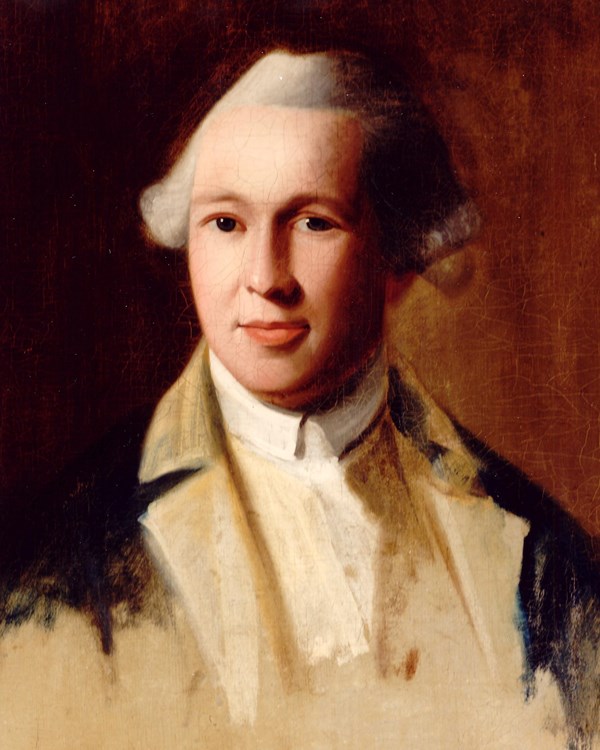
Dr. Joseph Warren: a martyr of the revolution
Dr. Warren was one of the most influential people during the early part of the American Revolution. He was a member of the Sons of Liberty and was one of Boston’s greatest physicians during the 1770s. He became active in the Sons of Liberty and was a great orator, speaking on the anniversary of the Boston Massacre. He was responsible for sending out Paul Revere and William Dawes on their midnight rides to warn John Hancock and Samuel Adams, who were staying in Lexington, that the regulars would be marching out to arrest them on April 18, 1775.
Dr. Warren was commissioned as a Major General in June of 1775 and was present at the Battle of Bunker Hill on June 17, 1775. He was one of the many heroes of Bunker Hill and he was killed before he could realize his dream of an independent nation. His hope for us was that “…. our land be a land of liberty, the seat of virtue, the asylum of the oppressed, a name and a praise in the whole Earth, until the last shock of time shall bury the empires of the whole world in one common undistinguished ruin!”
Some have said that if he had lived longer, he could have been our greatest Founding Father, surpassing even Washington. He is a martyr of the Revolution and an inspiration to us all.
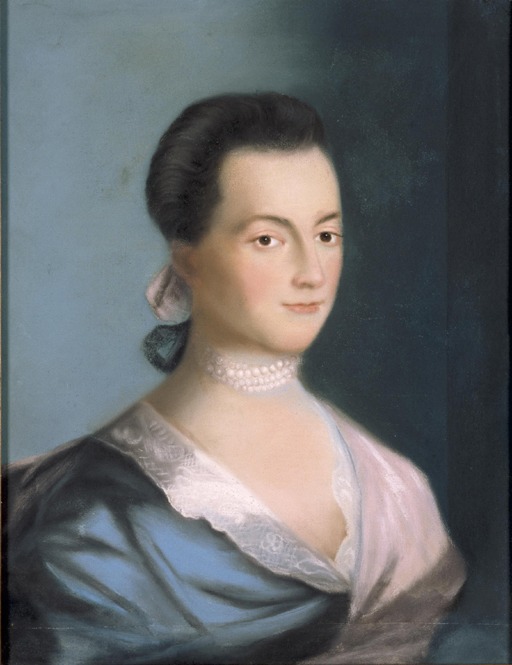
Abigail Adams
Aside from fulfilling the traditional 18th Century American role of wife and mother, Abigail Smith Adams lived a remarkable life in which she held non-traditional roles, and had a broad scope of experiences that few women had. She is considered to be one of America’s first feminist voices, and became an investor, entrepreneur, and European traveler. She met the King and Queen of England, was the wife of America’s second president, mother to the 6th, and was also the first woman to live in the White House.
Born in Weymouth, Massachusetts in 1744, Abigail lacked a formal education, but she was an avid reader, and lover of Shakespeare. She is known for the vast volumes of letters that she wrote throughout the course of her life, which not only tell her personal story, but the story of America’s journey from colony to republic.
In 1764 she married John Adams, and together they dedicated their lives to the founding of America. During the American Revolution, her husband’s lengthy political career separated them for the better part of ten years, which was the greatest hardship of Abigail’s life. She was tasked with raising a family, running a farm, and successfully managing the family finances in the face of war, inflation, and continuing uncertainty. Battles with the redcoat forces came uncomfortably close to home, and she had to be ready to “fly to the woods” with her children at a moment’s notice. Massachusetts paper currency lost two thirds of its value, and highly sought after “hard money” was scarce. She decided to invest the less desirable paper money in government securities and state notes, which paid a strong return. When her husband was sent overseas, she requested that he send her trunks of rare European goods, which she sold for cash in Boston. Much to her family’s benefit, she continued the practice of using what money she had to make more for many years to come.
Despite the heavy burden of responsibility which fell upon her shoulders, she also possessed a clear vision of what needed to change in a new American society. In one sense, she displayed progressive views on women that transcended the times in which she lived. While John served in the Continental Congress, she wrote to him and urged him to “remember the ladies” when forming a “new code of laws” for America. She said, “Do not put such unlimited power into the hands of husbands. Remember, all men would be tyrants if they could.”
The conversations between Abigail and her husband stand as a testament to the love and mutual respect that they would share throughout the duration of their lives and beyond. Before Abigail died in 1818 she did something that few, if any, married women did. She created a will. She left nearly every asset that she considered to be hers to female relatives and servants, despite the fact that the laws of coverture didn’t allow married women to possess money or property. This will was honored by her husband and sons. At the time of her death, she not only bequeathed wealth to the women in her life, she also passed along her independent spirit and sense of ownership, in hopes that future generations of women could also steer the course of their lives with greater agency and authority.
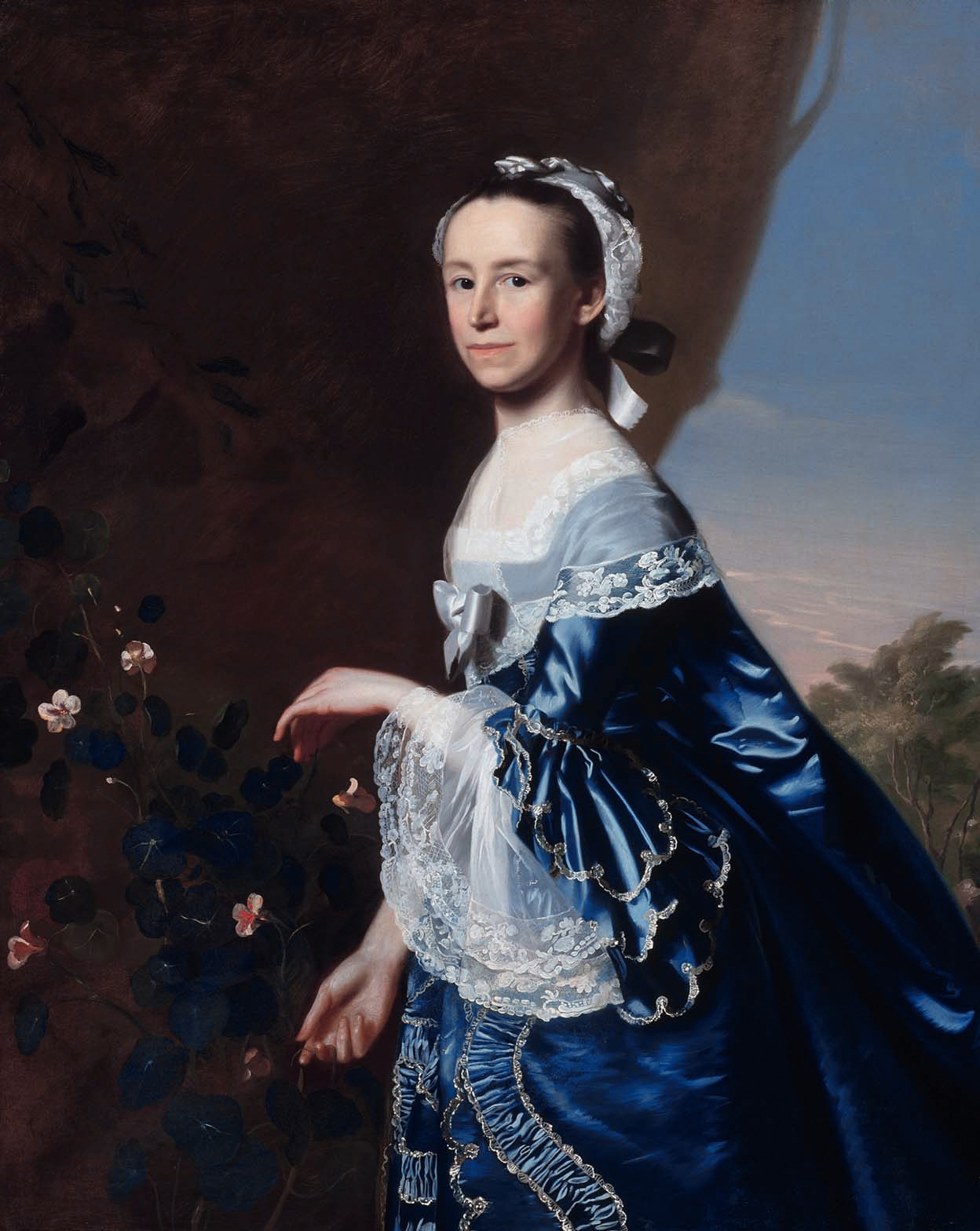
Mercy Otis Warren
Mercy Otis Warren (1728-1814) was a prominent American writer and political activist during the American Revolutionary period. Born in Massachusetts, she was a passionate advocate for the patriot cause and used her literary talents to promote revolutionary ideas. Warren is best known for her political plays and satirical writings that criticized British rule and championed American independence. Her works, such as “The Adulateur” and “The Group,” were influential in shaping public opinion and rallying support for the revolutionary movement. Additionally, Warren was a close friend and correspondent of many great patriots, including John and Abigail Adams.
She is also noted for her three-volume work titled “History of the Rise, Progress, and Termination of the American Revolution.” This seminal work, published between 1805 and 1815, provides a comprehensive account of the events leading up to, during, and after the American Revolution. Warren offered unique insights into the political and social dynamics of the period, drawing from her own experiences and observations as well as her extensive correspondence with key figures of the time. Her work remains an important source for understanding the American Revolutionary era and the ideals that shaped the young nation.
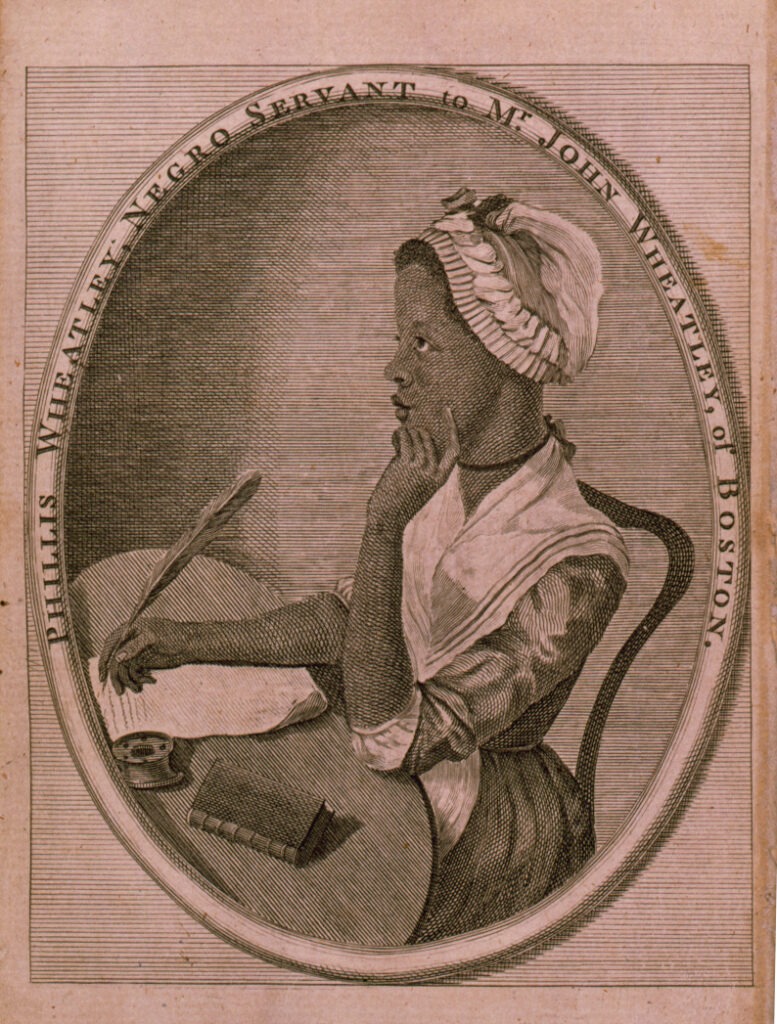
Phillis Wheatley
Phillis Wheatley was an African American poet of the 18th century. Born in West Africa around 1753 in what would now be called the country of Gambia, her ship was supposed to dock in the West Indies where she and the rest of the slave transport were to be auctioned off. Instead she was brought to the city of Boston, Massachusetts in 1761. She was about eight years old. Upon her arrival, she was purchased by a wealthy tailor and merchant named John Wheatley as a personal slave and attendant to his wife, Susannah. She was named Phillis for the ship that brought her to Massachusetts. The Wheatley family discovered that Phillis was exceptionally intelligent and decided to educate her. Her primary instructors were the Wheatley’s twin children Nathaniel and Mary, as well as Mrs. Wheatley herself. She mastered the English language within two years, in addition to learning Greek and Latin. She also studied geography, astronomy and literature, discovering an encouraged passion for poetry. She wrote her first poem at fourteen years of age, using the ever growing conflicts in Boston that would lead to the American Revolution as inspiration.
After the death of prominent evangelist Reverend George Whitfield, of whom she admired, she caught the attention of Selina Hastings, the Countess of Huntington. Countess Hastings aided Phillis in publishing a work she produced about Rev. Whitfield in England, bringing Phillis out of anonymity. Not long after, a meeting of some of the most prominent figures in the city of Boston was held at the behest of Mr. Wheatley, determining that she was the author of her various anonymous works and could be given the credit as such. In 1773, she became the first African American to have a work of literature published, as well as the only woman of color at that time. Her volume is called Poems on Various Subjects Religious and Moral. She traveled to England for the publication of the book, briefly engaging in popularity as she was sought out for her peculiarity by members of England’s gentry, as well as Benjamin Franklin. Despite this massive accomplishment, and unfortunately falling on difficult times after the revolution, she passed away on December 5th, 1784. She was around thirty years of age. Though not as appreciated during her time, her influence is still felt in our country today. Professors in universities have taught curriculums entirely based around her works, and various buildings in the country have been named after her, including a popular library in New York. A statue of her likeness can be found in the city of Boston as well. She is survived by her works, as well as a legacy of endurance, perseverance, and hope in the face of immense hardship and adversity.
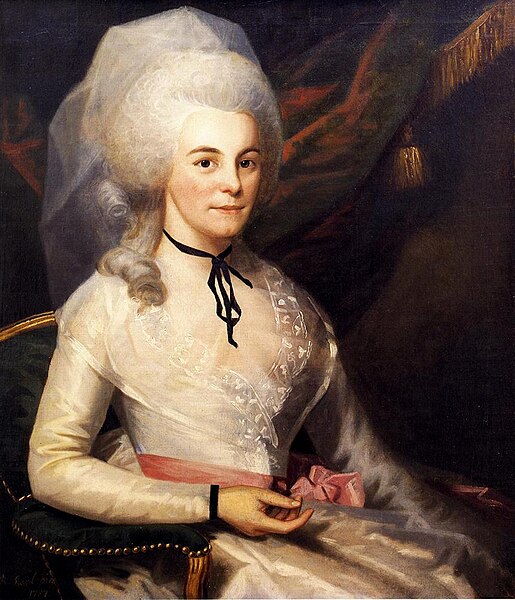
Eliza Hamilton
Elizabeth Schuyler Hamilton was born August 9, 1757. The second daughter of General Philip Schuyler and Catherine Van Rensselaer Schuyler, Eliza was connected to some of the most important and influential Dutch families in their region of New York. Her marriage to Alexander Hamilton in 1780 likely came as a surprise to many family and friends because of their vastly different social standings. Though he was aide-de-camp to General George Washington, Alexander was an orphaned immigrant with few social connections, and he could offer the young Miss Schuyler little assurance of prosperity in their new life together.
Although Alexander’s intelligence and acuity propelled him to prominence, he only accomplished this with the support of Eliza, whom he affectionately called Betsey. Alexander helped shape the American government and economy for future generations, and some of his important drafts through the years are written in Eliza’s handwriting; presumably Alexander dictated as he rested his writing hand. Over their 24 years of marriage, Eliza gave birth to 8 children, and also took in her orphaned goddaughter Fanny Antill, who was raised as the Hamiltons’ own daughter for 10 years. The most well-known portrait of Mrs. Hamilton was painted by Ralph Earl in 1787 while he was in debtors’ prison – another charitable endeavor as the Hamiltons commissioned it to help him earn the income needed to secure his release, and encouraged many of their friends to do the same.
After the tragic deaths of her eldest son in 1802 and her husband in 1804, Eliza raised their remaining children, while also helping to found the Orphan Asylum Society as a refuge for orphaned and vulnerable children in New York City. She raised money, gathered supplies, and contributed to the care and education of over 700 children in the 42 years that she served as a directress of the Society. Eventually, Eliza petitioned Congress for her husband’s war pension, which he had deferred while serving in the new government. By selling the land she was awarded in 1836, Mrs. Hamilton was able to amend the poor financial position that her husband had left behind upon his death. While few of her own writings survive, Eliza spent the last 50 years of her life championing her late husband’s legacy and compiling his writings with the goal of seeing his biography published. Eliza moved to Washington D.C. in 1848, and continued her philanthropic work by helping Dolley Madison and Louisa Adams raise money to begin construction on the Washington Monument. One of the last living links to the Revolution, Mrs. Hamilton died in Washington D.C. in 1854 at the age of 97.
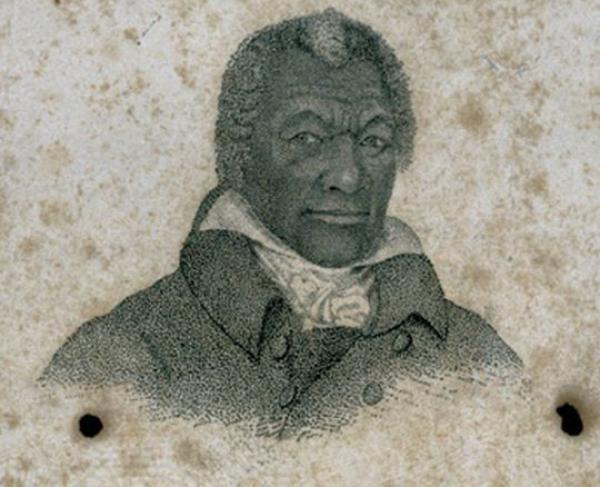
James Armistead Lafayette
James Armistead Lafayette was an African-American patriot who also served as a spy during the American Revolution. He was born into slavery in Virginia in 1748 and was owned by William Armistead. In 1781, he volunteered to serve in the Continental Army and was sent to spy on and infiltrate British lines. Under the guidance of General Marquis de Lafayette, he adopted the name of the General and became, “James Lafayette.” He worked as a double agent as well, feeding false information to the British while gathering vital intelligence for the American cause. His efforts proved invaluable in securing several American victories, including the decisive Battle of Yorktown.
After the war, he attempted to gain his freedom through a petition, which was supported by General Lafayette, acknowledging James’ extraordinary service to the United States military. He was granted his freedom in 1787 and went on to live a relatively quiet life after that.
Though his contributions were largely unrecognized during his lifetime, his legacy as a key figure in the American fight for independence has been increasingly acknowledged.
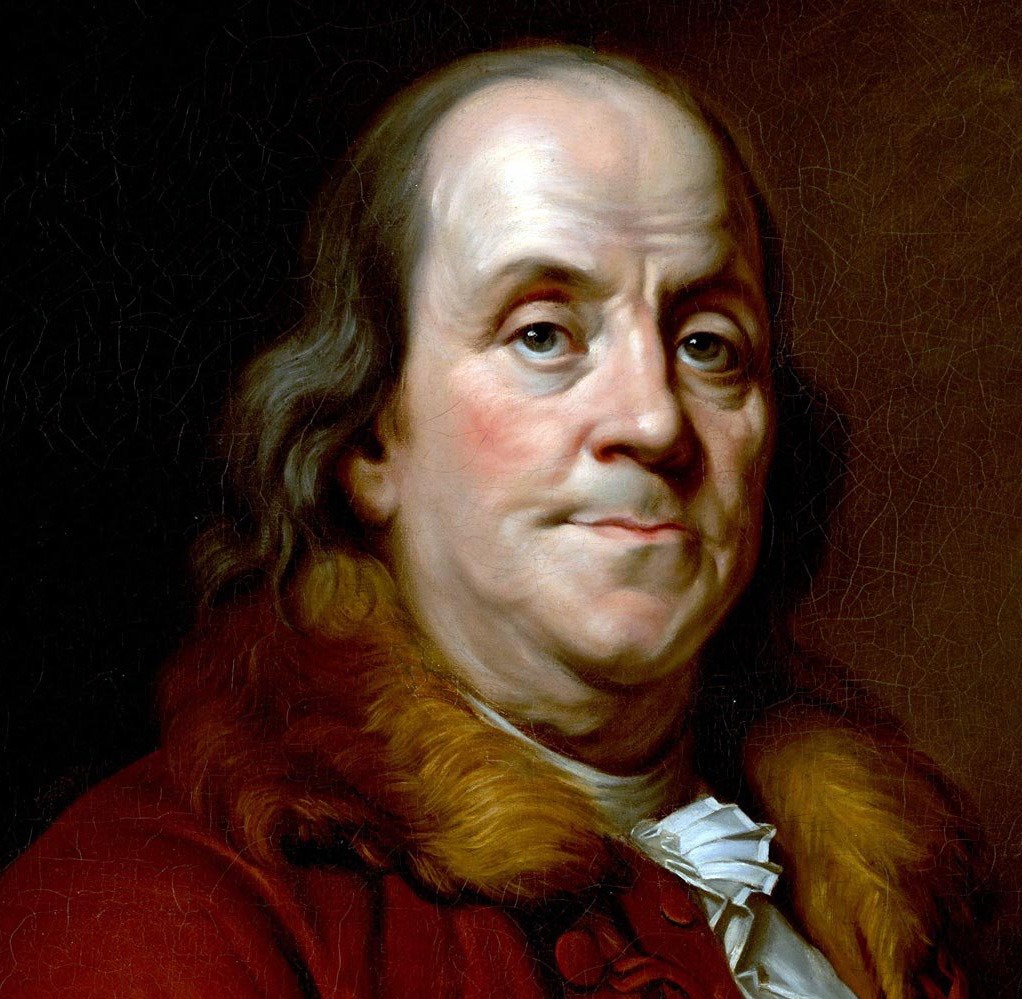
Benjamin Franklin
Benjamin Franklin has always seemed to be the most “approachable” of the Founding Fathers. While most of the Founding Fathers can appear unapproachable and distant in their biographies and portraits, Franklin’s slight smile and grandfatherly appearance reaches out to us 230 plus years after his death and invites us into a conversation with him. He was the Founder who felt that our nation’s new Republic in 1787 would thrive and succeed as long as we, the people, took care of it and kept it going. Dr. Franklin was also a valuable part of the process and completion of the Declaration of Independence. As the only delegate to be known worldwide in 1776, he helped to guide discussions and bring about compromises to unite the 55 delegates to the Second Continental Congress. He understood that the delegates must hang together or most assuredly, they would all “hang separately.”
Although he is now a synonymous figure with Philadelphia, Franklin was actually born in Boston in 1706. He was one of seventeen children born to Josiah and Abiah Franklin. The original plan was to have young Benjamin study to be a minister, which did not exactly fit with Franklin’s unique skill set so he needed to try other career paths. He became an apprentice for his brother James, who was a printer. This was a perfect trade for young Benjamin as he was an excellent writer and loved books and reading. At age 16, he began writing a series of essays under the pseudonym of “Mrs. Silence Dogood.” His character was a middle-aged widow who had humorous opinions to share with “her” readers. Franklin wrote 14 of these letters and his brother (who did not know who the author of them was) published them in his Boston newspaper. In 1723, Benjamin Franklin left his brother’s printing business and ran away to Philadelphia.
After not immediately finding a printing job that he liked, Franklin traveled to London where he worked in printing houses for a short time and then returned to Philadelphia which he then felt was his home. He became the publisher of the Pennsylvania Gazette which became the most popular newspaper in the colonies. Franklin married Deborah Reed in 1730 and the couple eventually had 2 children, Francis and Sarah. Deborah also raised Franklin’s illegitimate son, William. Franklin and his wife were apart for large portions of their marriage. She died in 1774 when Dr. Franklin was in England.
In 1732, Franklin began the publication of Poor Richard’s Almanac. It was published annually until 1758 and it became a must-have of colonial society. It contained news, weather forecasts, farming and domestic advice, poetry and other sections. It appealed to the normal, everyday person and many of Franklin’s most iconic sayings come from within its pages.
Benjamin Franklin also lived approximately 30 years in Europe where he was awarded honorary doctorates from British universities in 1759 and 1762.The title of Dr. Franklin comes from these awards. He also was in England during the passing of the Stamp Act in 1765 when the word of colonial uproar towards the legislation reached England. Franklin was, at first, unaware of the colonists’ hatred of the Stamp Act and went back and forth on the matter which caused him problems in the colonies. Later, he was of the opinion that the best way to get the act repealed was to boycott or not purchase the good affected. He also began to argue in England for colonial representation in Parliament if taxes were to be levied against the colonies. His idea fell on deaf ears.
As Dr. Franklin gradually became a supportive voice of the American colonies in England, his residency there was becoming less comfortable. This culminated in 1774 when he was brought in front of the Privy Council in London and was absolutely humiliated in front of the audience there. The speaker, Alexander Wedderburn, attacked his character and integrity over the emergence of a series of letters that were in Franklin’s possession. The letters somehow got released, angering the colonists further, due to their content that said some colonial rights may be further curtailed. Franklin chose not to speak on his own behalf. The next day, he was removed as Postmaster to the colonies. Franklin was furious and it is from this point that he tirelessly devotes himself to the idea of colonial independence. He returned home to the colonies in 1775, possibly to retire. He was sixty-nine years old.
Franklin’s arrival back in the colonies was celebrated in New York and Philadelphia. He was the world’s most famous American citizen and he was elected to the Second Continental Congress in 1775 as a representative of Pennsylvania. He advocated for the appointment of George Washington as the Commander of the Continental Army and was instrumental in helping to provide support and money for the Continental Army throughout the war.
Franklin was later appointed to the “Committee of Five” to draft a declaration of independence for the colonies. He served on the committee with Thomas Jefferson, John Adams, Roger Sherman and Robert Livingston. Jefferson was the primary author, but Franklin did suggest some important edits. His most famous edit was changing the phrase, “We hold these truths to be sacred and undeniable” to “We hold these truths to be self-evident.” Franklin believed that the term “sacred” sounded too religious and that “self-evident” sounded more scientific. Even though he was not the primary author, many of the ideas within the Declaration of Independence had been spoken by Dr. Franklin in the previous months and years. He wholeheartedly supported the document and voted in favor of Independence on July 2, 1776.
Throughout the Revolutionary War, Dr. Franklin was constantly working in some way toward American independence: from helping gain funds to finance it to traveling to France in efforts to help convince them to be our ally against Britain. He was extremely popular in France and was a large factor in the United States’ alliance with them which helped the colonies to win the war. He was a rock star in France, to use today’s expression. His face was on merchandise there and he claimed he was quite prominent there.
Franklin was called upon again in 1787 to be a part of the Constitutional Convention which resulted in our Republic that we are now entrusted to keep. Upon the Convention’s end, he is noted for his response to a woman asking what type of government the delegates had formed, whether a republic or a monarchy, to which Franklin replied, “A republic, Madam, if you can keep it.”
Benjamin Franklin seemed to do everything in his lifetime. In his 84 years he was a printer, publisher, writer, scientist (maybe most famous for his experiments with electricity), inventor, philanthropist, politician, diplomat, musician (he also created his own instrument, the glass armonica), postmaster and even a volunteer fireman. His lasting impact on Philadelphia is felt even today. He helped to create the first hospital there in 1751. He also strongly believed that books, ideas and information should be readily available to everyone and not just a select few. As a result, he created the first lending library in Philadelphia in 1731. He was part of the group that created Philadelphia’s first volunteer fire department. He also helped to create what is now the University of Pennsylvania, as well as founding the American Philosophical Society. He seemed to be the proudest of his earliest job which was that of a printer. As a result, he signed many letters as, “Ben Franklin, Printer.”
When Franklin died in 1790, an estimated 20,000 people attended his funeral in a city whose population in 1790 was around 28,000. His legacy in Philadelphia and the United States was secure then and should still be celebrated today.
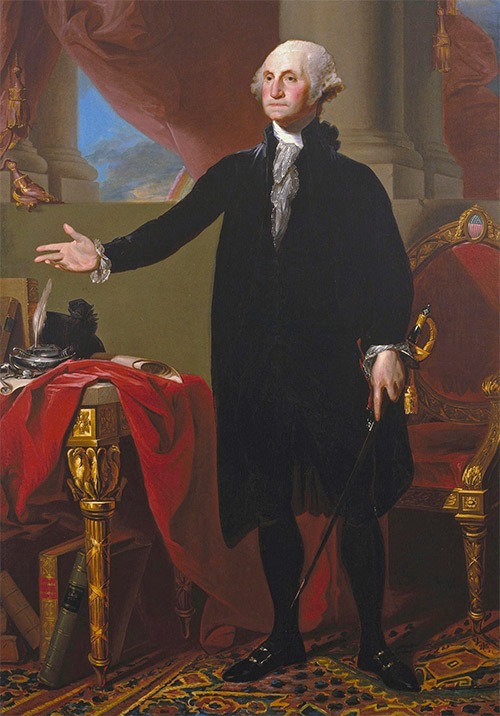
George Washington: Architect of Liberty – Illuminating the Path of the American Revolution
George Washington played a crucial role in guiding a young nation through the challenging birth of liberty.
As dissatisfaction spread across the thirteen colonies, Washington became a steadfast defender of the rights and aspirations of the American people. His unwavering commitment to freedom and self-determination placed him at the forefront of a revolutionary movement seeking to break free from tyranny.
The winter at Valley Forge showcased Washington’s leadership skills. In the face of bitter cold and hardships, he unified an army from diverse colonies with a shared purpose. His determination and resilience became the foundation on which a nation would stand.
The crossing of the icy Delaware River on Christmas night in 1776 highlighted Washington’s audacity and strategic brilliance. Leading his troops to a pivotal victory at Trenton, he reignited the flame of independence. This bold move became a symbol of Washington’s ability to turn adversity into triumph, setting the stage for the unfolding drama of the American Revolution.
Washington’s leadership, synonymous with sacrifice, was evident through the trials of war. His commitment was reflected in the silent courage of his troops, enduring harsh conditions for the promise of a nation free from oppression. The image of Washington at the helm, stoic and resolute, symbolized the spirit of a people determined to shape their destiny.
The climax of the American Revolution occurred at Yorktown, where Washington, alongside French allies, orchestrated a masterful siege leading to the surrender of British forces. This marked the triumph of liberty over tyranny, as the dream of a sovereign and independent America materialized before a hopeful nation.
Beyond military prowess, George Washington’s legacy encompasses the ideals of leadership, virtue, and civic duty. As the first President of the United States, he laid the foundation for a fledgling republic, steering the ship of state with wisdom and foresight. His Farewell Address, a poignant testament to his commitment to national unity, resonates through the corridors of time.
In the annals of history, George Washington stands as a symbol of transformative leadership and the enduring spirit of a nation. The American Revolution, with Washington at its helm, was more than a struggle for independence; it was a declaration of a people’s unyielding resolve to chart their course, govern themselves, and stand as a beacon of liberty for generations to come.
As the echoes of discontent reverberated across the thirteen colonies, George Washington emerged as a stalwart defender of the rights and aspirations of the American people. His unwavering commitment to the principles of freedom and self-determination propelled him to the forefront of a revolutionary movement that sought to cast off the shackles of tyranny.
The winter at Valley Forge bore witness to the crucible of Washington’s leadership. Amidst the bitter cold and hardships, he forged an army out of disparate colonies, united by a common cause. His steadfast resolve and resilience in the face of adversity became the bedrock upon which a nation would stand.
The crossing of the icy Delaware River on that fateful Christmas night in 1776 exemplified Washington’s audacity and strategic brilliance. In a daring move that defied the odds, he led his troops to a pivotal victory at Trenton, breathing new life into the flame of independence. This daring maneuver became emblematic of Washington’s ability to turn adversity into triumph, setting the stage for the unfolding drama of the American Revolution.
Through the trials of war, Washington’s leadership became synonymous with sacrifice. His commitment to the revolutionary cause was embodied in the silent courage of his troops, enduring the harshest of conditions for the promise of a nation free from oppression. The image of Washington at the helm, stoic and resolute, symbolized the spirit of a people determined to forge their destiny.
The climax of the American Revolution came at Yorktown, where Washington, in tandem with French allies, orchestrated a masterful siege that secured the surrender of British forces. The surrender at Yorktown marked the triumph of liberty over tyranny, as the dream of a sovereign and independent America materialized before the eyes of a hopeful nation.
George Washington’s legacy extends beyond military prowess; it encompasses the ideals of leadership, virtue, and civic duty. As the first President of the United States, he laid the foundation for a fledgling republic, steering the ship of state with wisdom and foresight. His Farewell Address, a poignant testament to his commitment to the unity of the nation, resonates through the corridors of time.
In the annals of history, George Washington stands as a colossus, a symbol of the transformative power of leadership and the enduring spirit of a nation. The American Revolution, with Washington at its helm, was not merely a struggle for independence; it was a declaration of the unyielding resolve of a people to chart their own course, to govern themselves, and to stand as a beacon of liberty for generations to come.
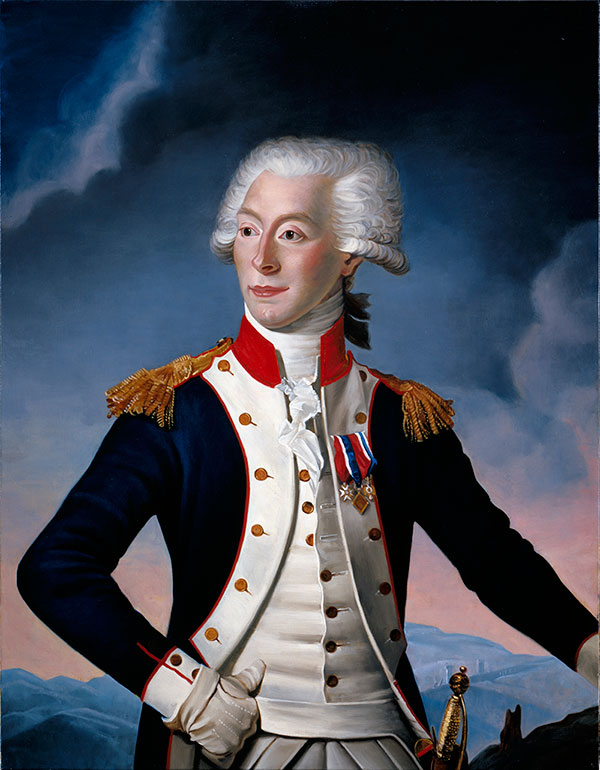
Gilbert du Motier, Marquis de Lafayette
Lafayette is one of the heroes of the American Revolution and a vital link between the United States and France.
Lafayette was born in 1757 into the French aristocracy and grew up in a very wealthy environment. After the Declaration of Independence was announced in France in 1776, Lafayette set sail for America. He was 19 years old when he arrived here with little military experience. He wanted to volunteer his services to engage in the fight for freedom with the Colonies.
Lafayette fought bravely throughout the war and was present at Yorktown in 1781, for the surrender of General Cornwallis’ troops, effectively ending the war. He made lifelong friends during the war and became one of General Washington’s closest friends after the war, visiting him at Mount Vernon in 1784. General Lafayette named his only son George Washington Motier de Lafayette as a tribute to his friend.
Lafayette returned to France after the American Revolution and helped to start the French Revolution for liberty and equality for all. Some refer to Lafayette as the hero of two worlds for his actions in both Revolutions. He was imprisoned as a traitor in 1792 for refusing to go along with the brutal tactics of the Reign of Terror in France. He was released in 1797.
Lafayette was also a true abolitionist who advocated for equality for everyone. He is an honorary citizen of the United States and is buried in soil from Bunker Hill surrounding him in France.
Lafayette came back to visit the United States in 1824-1825 and the bicentennial of that visit begins in 2024, with celebrations in place for every state that he visited including Alabama. Please visit https://lafayette200.org/ for more information. Vive Lafayette!
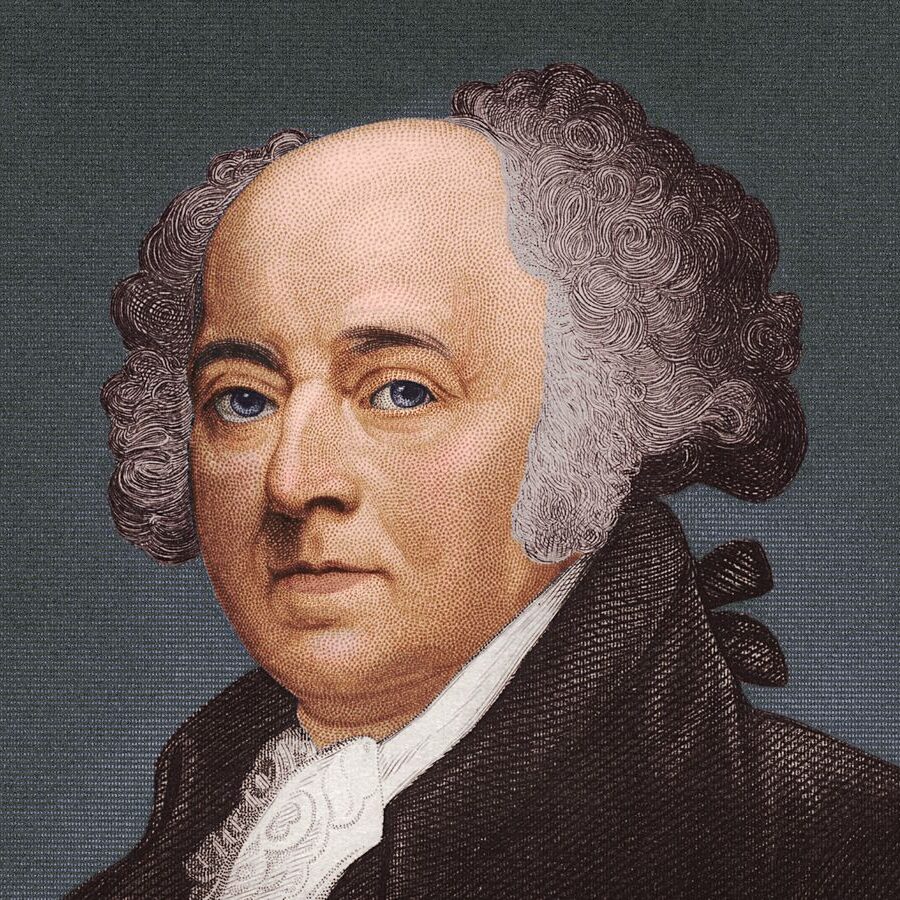
John Adams
John Adams holds a distinguished place among American founders, celebrated for his pivotal role in shaping the revolutionary spirit and governance of our nation. Adams had a hand in most aspects of our nation’s founding, from his writings against the unfair actions of the British government, to serving on numerous committees with the Continental Congress. As a fierce advocate for independence, Adams’s eloquent voice and indomitable spirit were instrumental during the Continental Congress, where he championed the cause that would lead to the Declaration of Independence. Additionally, Adams’ role in drafting the Massachusetts Constitution, which later served as a strong model for the U.S. Constitution, underscores his profound influence on the foundational structures of American governance. His leadership continued as a diplomat in Europe, and later as the second President of the United States.
Notably, Adams’s presidency is often underrated, yet one of his most significant achievements was his use of diplomacy to avoid war with France. This decision, critical yet controversial at the time, preserved the nascent nation’s stability and demonstrated his commitment peace over conflict. Adams’ legacy of dedication to the principles of liberty and justice not only helped forge our national identity but also continues to inspire American values today. His contributions make him a worthy exemplar of the spirit we celebrate in this 250th anniversary year of our country’s journey toward freedom and democracy.
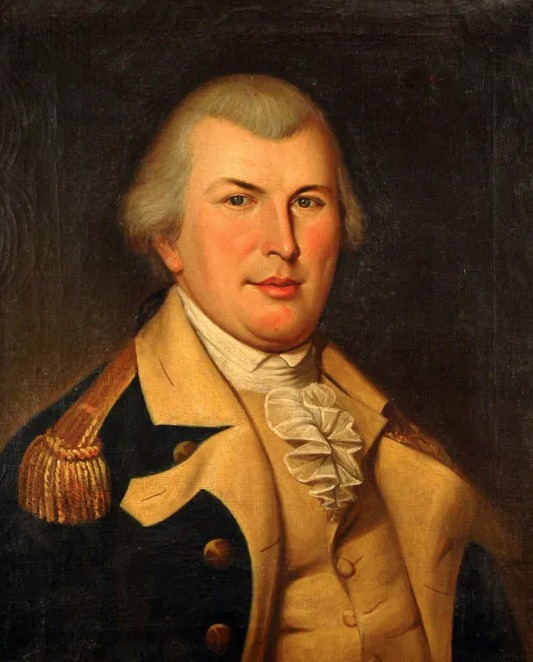
Nathanael Greene
General Greene was one of the greatest generals of the American Revolution. He was a brilliant tactician and strategist and well respected by his men and other commanders in the army, especially General George Washington, who said of Greene that he was “ a Gentleman in whom I place the most intire [sic] confidence.” He was known as the “Fighting Quaker,” and he rapidly rose through the Continental Army ranks, becoming a general in 1775. He led his troops to victory at the battles of Trenton and Princeton and became the commanding general of the Southern Theater of War in 1780 and was instrumental in ending the British occupation there and bringing about the end of the war in 1781. General Greene died of heat stroke in 1786 and is buried in Savannah, Georgia.
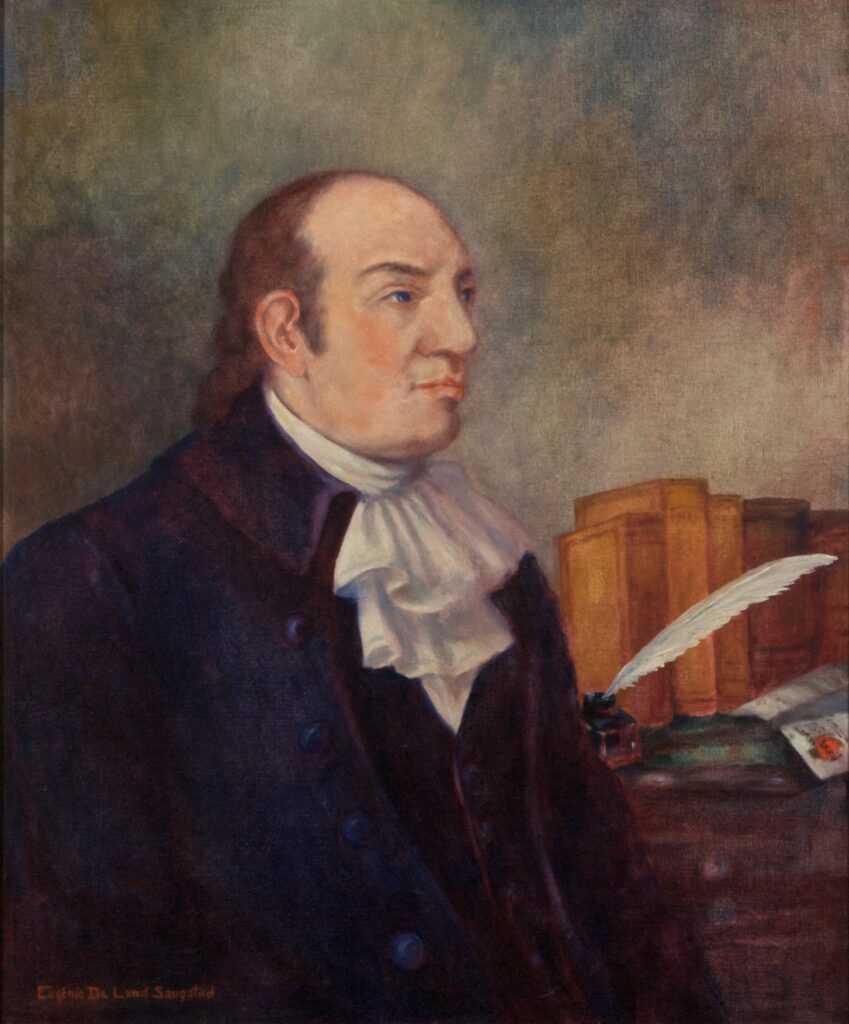
George Wythe
George Wythe was a “teacher of the Founders.” His home in Williamsburg, Virginia was the place where Thomas Jefferson, John Marshall, and James Monroe all were educated in the law as well as Greek, Latin, and mathematics at William and Mary. He served in the House of Burgesses between 1754 and 1766 and was a brilliant legal mind. When the Colonies began to resist British rule, Wythe was at the forefront, becoming a delegate to the 5th Virginia Convention and was a signer of the Declaration of Independence. He helped to re-write the laws for the State of Virginia along with Thomas Jefferson. He was later part of the Constitutional Convention, but left the Convention early and was not a part of the final debates, nor did he sign the document. He left the Convention to attend to his beloved wife, Elizabeth. He did help to ratify the Constitution as a Federalist for the state of Virginia in 1788. He taught at William and Mary until 1789 and moved to Richmond when it became Virginia’s capital city.
Wythe should also be remembered as a gradual opponent of slavery. Throughout his life, in which he was a slaveholder, he began to realize the practice was a barbaric contradiction to his teachings on freedom and liberty. He began to release some of his slaves, hiring some back as paid workers in his home in Richmond, Virginia. By the time he died, Wythe had freed all of his slaves. Many associates and friends shunned Wythe for these views.
Wythe died in 1806. He was allegedly poisoned by his grandnephew, George Sweeney.
